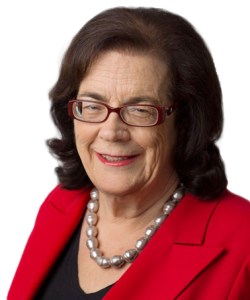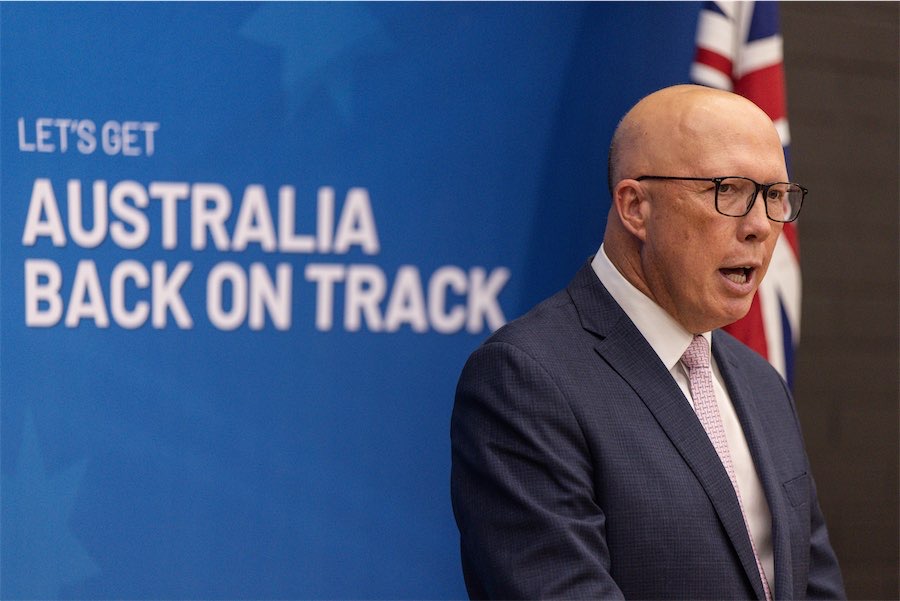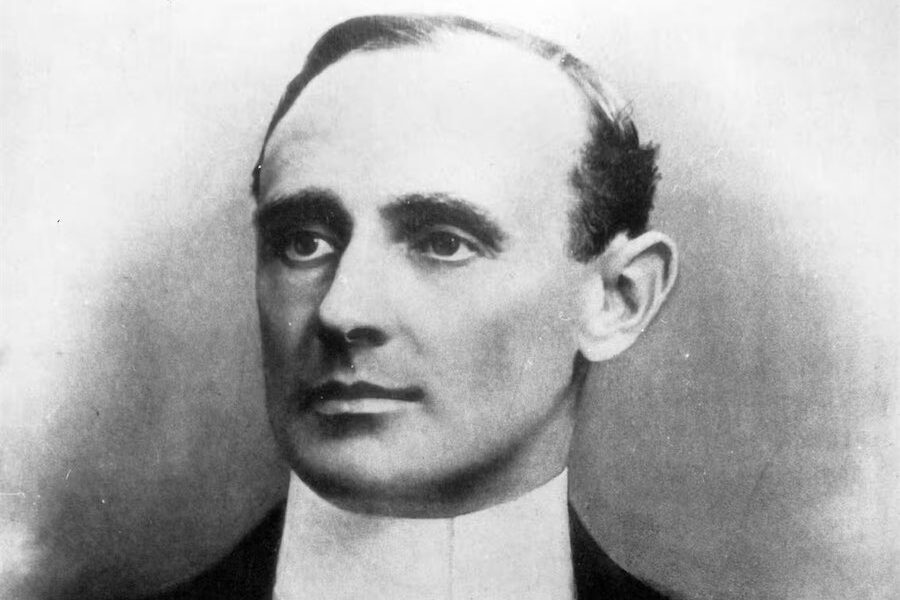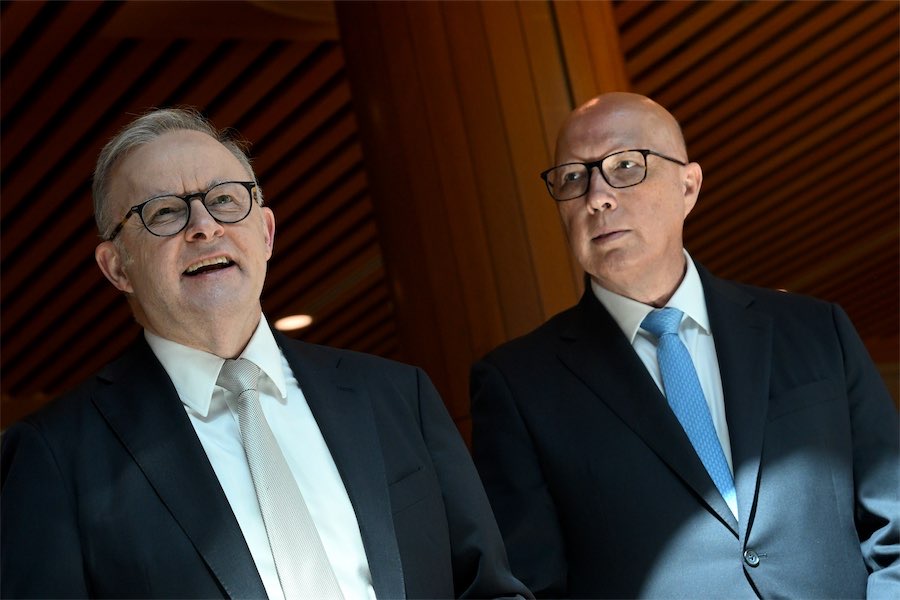
Does Anthony Albanese have the political capital or charisma to live up to his claims he would govern like Labor icon Bob Hawke? Political columnist MICHELLE GRATTAN asks the question.
YEARS ago, Kevin Rudd sold himself as a version of Howard-lite, as he sought to reassure voters he wouldn’t be scary. This week, Anthony Albanese invoked a Labor icon to soothe fears of change.

The opposition leader said he’d govern like Bob Hawke if he became PM. He would bring Australians together, seek consensus, work with business.
It wasn’t a bad pitch, as pitches go. Among many people, Hawke’s name remains prime ministerial gold.
Albanese needs to address voter hesitancy about change and about himself. By linking back to Hawke, he is drawing on what many would regard not just as modern Labor’s best days but as a good era for Australia (although it did end in a recession).
But the opposition leader’s claim he’d govern like Hawke has its limits. Hawke’s strengths as leader came in part from his charisma, and his forging (well before he was PM) of a strong link with the Australian people.
Albanese as PM might have a more unifying style than Scott Morrison but he would arrive in the job with considerably less political capital than Hawke brought by virtue of his sheer force of personality and connection with the electorate.
In terms of substance Hawke, in partnership with Paul Keating, led a reform government that transformed Australia. In economic terms, they executed a revolution.
Albanese this week, in a speech to the Australian Financial Review business summit, laid out his economic goals: lifting productivity, re-igniting economic and jobs growth, transforming the economy using renewable energy. But he stressed, “I’m not proposing revolution”.
When he was elected, Hawke wasn’t proposing a revolution either. His theme for the 1983 election was reconciliation, recovery and reconstruction, but the detail of his platform was very different from the significant things his government actually did over the following years.
Events – the international pressure to open Australia’s economy – shaped the trajectory of Hawke’s prime ministership.
However carefully opposition leaders seek to define themselves, it’s nearly impossible to be sure how they will handle the circumstances of power.
We put much emphasis on politicians keeping promises. But it can also be important that, on occasion, they are willing to abandon or breach earlier commitments.
Hawke was willing to do this when circumstances demanded – Gough Whitlam was not.
The government likes to claim Albanese would be the most left wing prime minister since Whitlam. The problem about Whitlam as PM was not that he was leftwing (a misnomer anyway) – it was that he was inflexible. He was unwilling to break promises and cut back his extensive reform “program” when international circumstances altered dramatically, with the oil shock shaking the Australian economy.
It would be interesting to hear Albanese’s view on when it’s okay to break promises. Understandably, it’s not something he’d want to dwell on, given he’s trying to convince people that what he says is what they’ll get.
An important quality of a good prime minister is the ability to react effectively to the unexpected. Labor’s wartime PM John Curtin – also referenced by Albanese this week – had that ability.
We can’t be sure until they are tested whether a leader will do well or badly in a crisis. Nevertheless, such assessments are important when we consider how circumstances can quickly and dramatically transform.
Who would have thought the Rudd government would face a global financial crisis? Who would have expected the Coalition government, which signed a free trade agreement with China, would be subjected a few years later to trade retaliation by that country?
And that’s not to mention the pandemic.
As Albanese seeks to define himself reassuringly, Morrison and his ministers work overtime to paint him in a dark image, opaque, a risk.
They’re slapdash with the brush. For example, they emphasise he has never held an economic or national security portfolio. This is a specious argument.
Albanese had major responsibilities (infrastructure, transport), and served in cabinet during all of the 2007-13 government, including briefly as deputy PM. And as Labor likes to point out, although he’d held senior portfolios, Tony Abbott hadn’t had a central economic or a national security ministry when he became PM.
Prime ministerial aspirants can prepare themselves on these issues and competent leaders will learn on the job.
As they ramp up national security for the election, Morrison and Defence Minister Peter Dutton are like a couple of tradesmen with chisels, desperately trying to chip away at Albanese’s declarations of bipartisanship.
Albanese told the Lowy Institute on Thursday: “For Labor, national security is above politics”. What he’s really saying is that Labor needs it to be.
For its part the government sees national security is a potential lifeline in its bid to hold onto office. But mobilising it as an electoral tool is not proving as easy as it might have hoped.
The attempt in the recent parliamentary week to portray Labor as soft on China policy didn’t come off.
The government harks back to the Labor government’s low spending on defence. The opposition half-heartedly argues the toss on the figures but says Labor agrees with the present spend of about 2.1 per cent of GDP and suggests (in anticipation of the budget) that it might need to be higher.
Labor is sticking close to the government on broad strategic questions while criticising the multiple fumbles and stumbles in procurement.
The government is rolling out the big defence announcements as it drapes the election set in khaki. It hopes Labor will be wedged on something, somewhere.
This week Morrison announced a proposed submarine base on the east coast, as well as plans for a big expansion of the defence workforce by 2040. Labor derided the timing of the announcements as election-driven.
Notably, in view of his mini-me tactic, Albanese has left some difference on the submarine base. Labor has not endorsed the government’s approach, which is for a decision to be made from three possible sites – Port Kembla, Newcastle and Brisbane – that have been shortlisted by Defence.
Instead, an Albanese government would undertake a review of Australia’s defence force posture, which would provide advice on where the subs base should be.
Predicting how Albanese would shape up on the international stage is another crystal ball exercise. No one would have anticipated, when he came to power, the extent of Scott Morrison’s international activism.
Beyond climate policy, we are presently hearing more about how Labor would not differ from the government on international issues than getting a steer on the positive path Albanese would try to carve out. That’s the nature of this election.![]()
Michelle Grattan, Professorial Fellow, University of Canberra. This article is republished from The Conversation.
Who can be trusted?
In a world of spin and confusion, there’s never been a more important time to support independent journalism in Canberra.
If you trust our work online and want to enforce the power of independent voices, I invite you to make a small contribution.
Every dollar of support is invested back into our journalism to help keep citynews.com.au strong and free.
Thank you,
Ian Meikle, editor




Leave a Reply